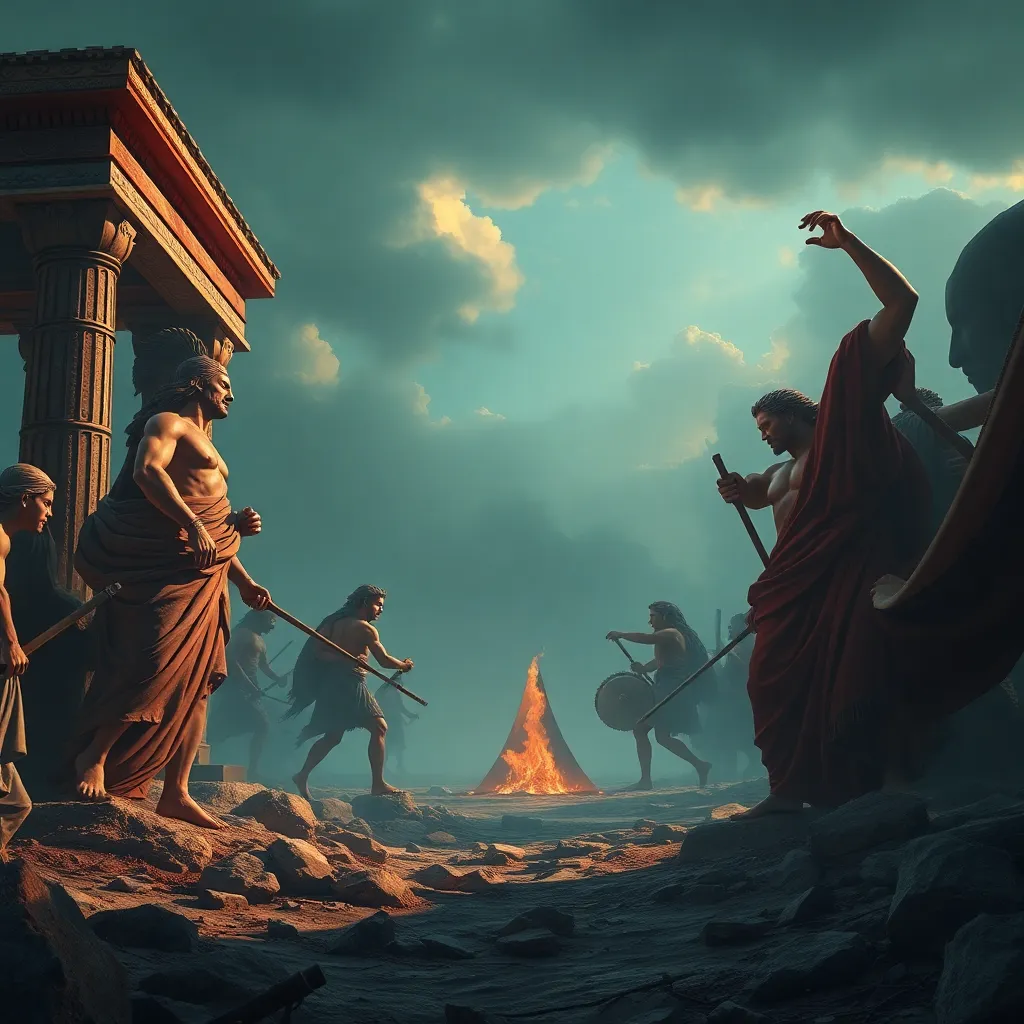The Iliad’s Exploration of Love and Desire Amidst War
I. Introduction
The epic poem “The Iliad,” attributed to Homer, dates back to the 8th century BCE and is set against the backdrop of the Trojan War. This historical context not only frames a narrative of heroism and conflict but also deeply explores the emotional landscapes of its characters. Central to this exploration are the dual themes of love and war, which intertwine to shape the motivations and actions of the heroes and gods alike.
This article posits that love and desire are critical forces that influence the characters’ choices and the unfolding narrative amidst the chaos of war. Whether through romantic entanglements, familial bonds, or divine interventions, the presence of love in “The Iliad” serves as both a motivator and a source of conflict.
II. The Nature of Love in The Iliad
“The Iliad” presents a multifaceted view of love, showcasing various forms that drive its characters:
- Romantic Love: The intense emotions between lovers, such as Paris and Helen.
- Familial Love: The bonds between family members, evident in Hector and Andromache’s relationship.
- Platonic Love: Friendships that transcend mere companionship, notably seen in Achilles and Patroclus.
Each of these types of love plays a significant role in motivating the characters’ actions, highlighting how love can be both a source of strength and a catalyst for tragedy.
III. The Role of Desire in Human Relationships
Desire permeates the interactions between characters in “The Iliad,” acting as a potent driving force:
- Desire for Glory: Heroes seek honor and recognition on the battlefield.
- Desire for Love: Romantic and platonic desires influence decisions, often leading to conflict.
- Divine Desire: The gods exhibit their own desires, impacting mortal lives significantly.
This interplay between desire and honor creates a complex dynamic, where characters must navigate their personal yearnings against the backdrop of their heroic obligations.
IV. Romantic Relationships and Their Impacts
Romantic relationships in “The Iliad” serve as both a source of motivation and conflict:
- The Love Between Paris and Helen: Their passionate affair ignites the Trojan War, showcasing how love can lead to widespread destruction.
- The Bond of Achilles and Patroclus: Their deep friendship illustrates the tragic consequences of love, culminating in Patroclus’s death, which propels Achilles into a vengeful rage.
These relationships highlight the profound impact of love on individual destinies and the larger narrative of the war.
V. Familial Love and Loyalty
Familial love is another pivotal theme in “The Iliad,” influencing characters’ decisions amidst the brutalities of war:
- The Relationship Between Hector and Andromache: Their tender exchanges underscore the personal toll of war, as Hector grapples with his duty to protect his city versus his desire to safeguard his family.
- The Impact of Family Ties: Many characters, including Achilles, are motivated by their familial connections, leading to choices that reflect both loyalty and sacrifice.
This theme reinforces the idea that love extends beyond romantic relationships, deeply embedding itself in the fabric of duty and honor.
VI. The Divine Influence of Love
The gods in “The Iliad” are not only spectators but active participants in the narrative, often driven by their own desires:
- Aphrodite: As the goddess of love, she plays a crucial role in Paris and Helen’s relationship, illustrating how divine love can provoke mortal conflict.
- Eros: The personification of desire, Eros influences both gods and humans, reflecting the chaotic nature of love and passion.
The interventions of the gods serve to mirror human emotions, emphasizing how love transcends the mortal realm and impacts the fate of warriors.
VII. The Conflict Between Love and Duty
One of the central tensions in “The Iliad” is the conflict between personal desires and heroic obligations:
- Torn Between Love and Duty: Characters like Achilles face dilemmas where their love for friends and family clashes with their roles as warriors.
- Examples of Inner Conflict: Hector’s love for Andromache contrasts with his duty to defend Troy, exemplifying the sacrifices heroes make in the name of honor.
This ongoing struggle encapsulates the essence of the human experience: the balancing act between personal feelings and societal expectations.
VIII. Conclusion
In conclusion, “The Iliad” intricately weaves themes of love and desire into its narrative, showcasing how these emotions shape the characters’ fates amid the chaos of war. From romantic passions to familial loyalty, the exploration of love offers profound insights into human nature and the conflicts that arise from it.
The lasting impact of these themes resonates beyond the ancient text, prompting reflections on how love and desire influence our lives and decisions in times of conflict today. As we navigate our own tumultuous landscapes, the lessons of “The Iliad” remind us of the timeless power of love in all its forms.




